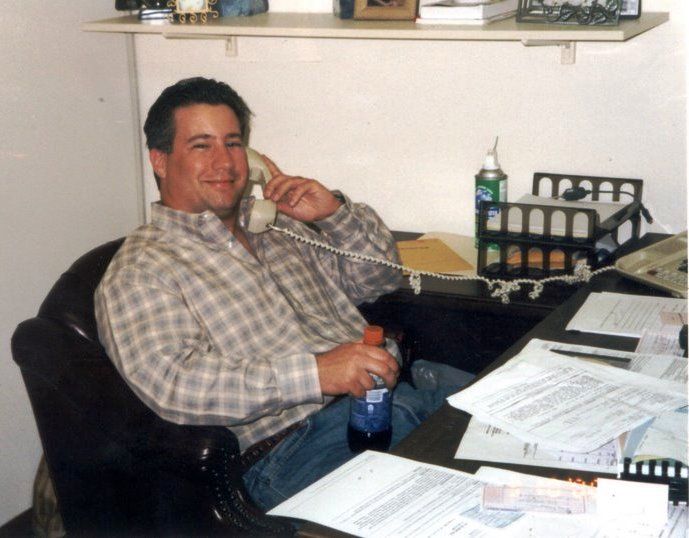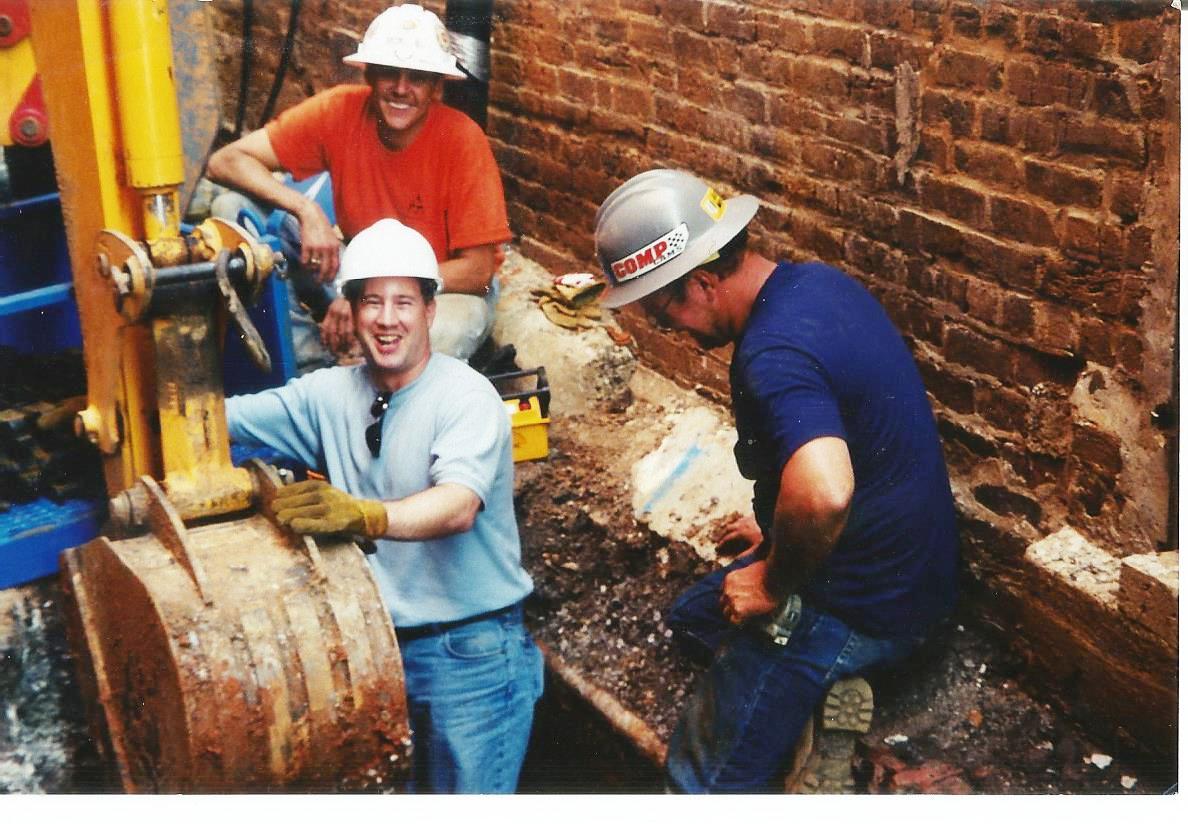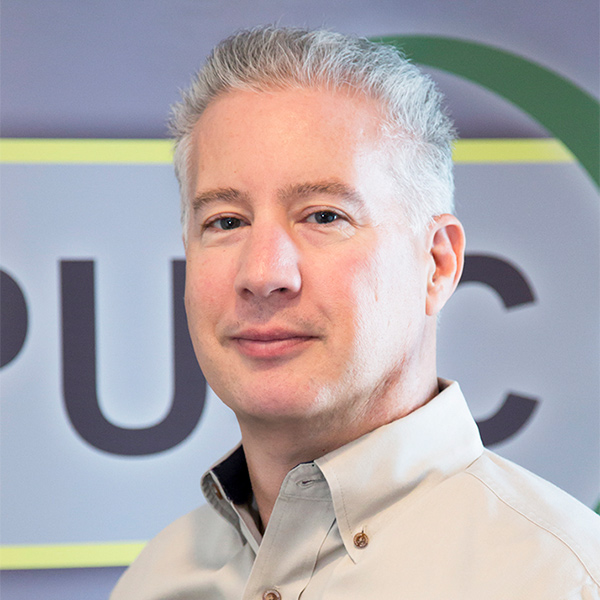
Part 2 Mike Woodcock Education and Early Career in Underground Utility Construction
Two Brothers, Two Careers, One Company by Tracy Weaver, Portland Utilities Construction Co., LLC.
Introduction: In 1995 brothers Mike Woodcock and Greg Woodcock began working at their father Ernie Woodcock’s underground utility company, Portland Utilities Construction Co., specializing in sewer and water pipeline renewal. But that’s where their similarities ended. Mike, armed with a Master’s in Business Administration and a head for numbers, started work as an assistant estimator and project manager. Greg, with a young family to support and the ability to make people laugh, hit the highways as a laborer. Listen to their stories to see what professional career paths in undergroundutility construction best align with your skillset.
In part two of the series Two Brothers, Two Careers, One Company, PUCC Vice President Mike Woodcock discusses why he chose Finance in the 1990s as a college major and pursued a Masters in Business Adminstration. Join the conversation and learn how the underground utility industry provided Mike an ideal career path to utilize his business education and what pathways exist today for professional career seekers.
PART 2 MIKE WOODCOCK COLLEGE EDUCATION AND EARLY CAREER IN UNDERGROUND UTILITY CONSTRUCTION
Michael Woodcock, oldest son of company founder Ernie Woodcock, joined Portland Utilities Construction full-time in June of 1995. Mike was born in 1969 at Hepburn Hospital overlooking the “old St.Lawrence River” in Ogdensburg, New York to a family rooted in education and teaching. In the 1980s he moved south with his mother, sisters and brother so his father could pursue a career in underground utility construction. Mike’s formative years were spent playing sports and going to school in Bowling Green KY and Tampa, FL.
TW: What area of education did you specialize in college? Why were you drawn to that department of specialty?
MW: I specialized in Finance because I always liked numbers that could be used to analyze something.
TW: Did you have a favorite professor or business mentor in college? What was it about that person that you were drawn to?
MW: I generally liked all my professors and I liked all of their knowledge. They all had admirable qualities.
TW: What year did you graduate college and from where?
MW: I graduated from Western KY University in 1992 with a degree in Finance. I graduated in 1994 with an MBA from the University of Tampa, FL.

TW: Why did you a pursue an MBA? MW: I wanted to be a certified financial planner and at that time you had to have a master’s degree or five years’ experience.
TW:Describe the perfect job you were looking for.
MW: About the time I graduated from WKU in 1992, my father formed PUCC as an underground utility contractor. I worked in my spare time to help him crunch numbers and prepare estimates for municipality construction projects. The more I did it (bid projects) the more I liked it as it combined all the things I liked, crunching numbers, using data to make decisions, using business principals and concepts like accounting which I knew meant a lot to the business processes. I am still drawn to these types of business and work principals today.
TW: What office location did you start your career at PUCC? What were some of your early job responsibilities?
MW: I started in the Kingsport, TN office and worked as Project Manager for Gary Testa, the field Superintendent and todays General Manager. I was also Assistant Estimator to my father Ernie Woodcock, the company President.
TW: Who taught you to estimate and do you remember his or their early advice about estimating?
MW: My father and Homer Collins, PUCC’s Senior Estimator back in the 1990s, were bidding open cut sewer and water pipe installation projects. I learned about estimating through their discussions and debates. But I also learned a lot going out among the crews and watching their production. I asked Gary Testa and Rick Hamm, the field superintendents, a lot of questions. From those folks I learned a lot about the construction industry culture and etiquette. I had to learn how to deal with engineers, things I would not have had to learn if I had become a financial planner. There were so many things you were exposed to such as construction law in the early days and how to talk to a field supervisor, an engineer and a guy from the City. It was three different worlds that I had to learn how to navigate.
TW: What advice would you give a 24 or 25 year old just starting out in the business.
MW: Talk less and listen more. Don’t use words like always and never.
TW: You married your wife Leslie Woodcock, in 1995 around the same time you started full-time for PUCC. Your sister Tracy Woodcock Weaver joined PUCC in 1996 and your wife Leslie in the early 2000s. Your college friend John Keck and cousin Lisa Decker have also found professional careers at PUCC. What internships and/or professional career paths are available for college or vocational students, post military personnel and/or for the person who wants to add years of experience to their resume?
MW. The professional career path or internships available for the underground utility industry are:
Project Manager, Estimator, General Manager, Office Manager, Finance or Accounting Manager, Vice President or President. Other opportunities include Safety Manager, Fleet Manager, Human Resources Manager, Business Development/Marketing Manager, Resource/Contract Manager
TW: You and your wife Leslie have three (3) daughters, Abbi, a college graduate of the University of Kentucky, Maddie a college student at Murray State, and Lizzie a high school student. What areas of study should college and high school students focus on if considering career opportunities in underground construction?
MW: Graduates who want to take advantage of the great pay and benefits offered in underground utility construction should consider degrees in construction management or engineering. Accounting, finance, human resources, management and marketing are other courses of study found in the business department of most colleges.
TW: For those who want to pursue careers within the underground utility construction industry, can job experience take the place of a college education?
MW: Yes, there are many professional career opportunities open in our industry to those without a college education. I would recommend learning basic computer skills such as Microsoft Excel and Microsoft Word and professional e-mail correspondence to help advance up the career path. If you add these basic skills then your experience can help take the place of a college degree.

Michael Woodcock is Vice President of Portland Utilities Construction Company, LLC where for the past 25+ years he has been involved in the growth of their pipe bursting operations from a few laterals here and there to well over 2 million linear feet. His company has performed pipe bursting projects in over 17 different states and the District of Columbia and is widely recognized as a leading pipe bursting contractor in the southeast and on a national level. Michael has been involved in many different volunteer industry associations, including the International Pipe Bursting Association (IPBA) and serves as the Vice-Chairman of the NASTT’s Pipe Bursting Center of Excellence. His education includes a BS in Finance from Western Kentucky University and a Masters of Business Administration from the University of Tampa.
